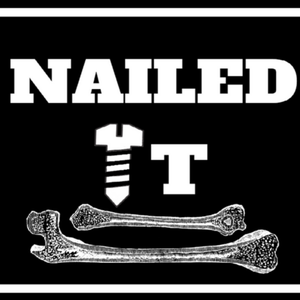
Nailed It Ortho
Nailed It Orthodocs
Conversations with Orthopaedic Surgeons covering various high-yield topics.
- 7 minutes 26 secondsMonday Missteps Ep. 2 - The Missed Ankle Injury
What happens when a seemingly simple ankle sprain turns out to be something far more serious?
In this episode, we dive into a case of a 27-year-old soccer player whose ankle pain was initially dismissed, only to reveal a missed syndesmosis injury months later. We explore: ⚕️ The subtle signs of syndesmotic injuries often overlooked in the ED. ⚕️ The consequences of delayed diagnosis and non-operative treatment. ⚕️ How to avoid this common yet critical mistake in your practice.
Listen now and learn why a deeper look at imaging—and trusting your clinical instincts—can make all the difference.
This episode is sponsored by the American Academy of Orthopaedic Surgeons:
Filled with content that has been vetted by some of the top names in orthopaedics, the AAOS Resident Orthopaedic Core Knowledge (ROCK) program sets the standard for orthopaedic education. Whether ROCK is incorporated into your residency curriculum, or you use it independently as a study tool, the educational content on ROCK is always free to residents. You’ll gain the insights and confidence needed to ensure a successful future as a board-certified surgeon who delivers the best patient care. Log on at https://rock.aaos.org/.
13 January 2025, 2:47 am - 56 minutes 3 seconds108: Bone Defects w/ Dr. Frumberg
Why do bone defects occur, and how can we best manage them? In this episode, Dr. Frumberg joins us as we explain the intricacies of bone defect classifications, the role of host factors, and groundbreaking treatments like the Masquelet technique, vascularized fibula grafts, and distraction osteogenesis. From the smallest Type I defects to the most complex Type IV challenges, this conversation is packed with actionable insights for orthopedic surgeons and enthusiasts alike.
Plus, hear Dr. Frumberg’s expert take on when amputation might be the best option and the importance of preserving joint function and stability in treatment planning.
David Frumberg, MD, is an Assistant Professor of Orthopaedics and Rehabilitation at Yale School of Medicine. He is co-director of the Yale Limb Restoration and Lengthening Program. He is the Director of the Cerebral Palsy Program at Yale-New Haven Hospital.
He specializes in complex orthopedic conditions that require more attention and care. He works closely with patients and their families to understand their needs and unique goals. He enjoys collaborating with other medical professionals to maximize the functioning and comfort of patients of all ages. Dr. Frumberg utilizes state of the art surgical techniques, and is devoted to providing his patients with innovative and compassionate care. His areas of expertise include:
- Limb lengthening and stature lengthening
- Limb deformity correction
- Cerebral palsy
- Arthrogryposis
- Neurologic conditions that cause joint contractures
- Fracture nonunions and malunions
- Musculoskeletal infections
Goal of episode: To develop a baseline knowledge of bone defects.
In this episode, we discuss:
- Causes of bone defects
- Classification
- Treatment
- and many more.
This episode is sponsored by the American Academy of Orthopaedic Surgeons:
Filled with content that has been vetted by some of the top names in orthopaedics, the AAOS Resident Orthopaedic Core Knowledge (ROCK) program sets the standard for orthopaedic education. Whether ROCK is incorporated into your residency curriculum, or you use it independently as a study tool, the educational content on ROCK is always free to residents. You’ll gain the insights and confidence needed to ensure a successful future as a board-certified surgeon who delivers the best patient care. Log on at https://rock.aaos.org/.
5 January 2025, 10:57 pm - 46 minutes 46 seconds107: How to CRUSH Residency Interviews w/ Dr. Mika & Dr. Romano
Are you a medical student interviewing for Orthopaedic Surgery Residency spots? Here are some tips on how to stand out and crush your residency interviews!
As mentioned in the podcast, check out medicalroomatenetwork and use the code NAILEDIT for a FREE account. Good luck!
Code for FREE ACCOUNT: NAILEDIT
Website: https://www.medicalroommatenetwork.com/
This episode is sponsored by the American Academy of Orthopaedic Surgeons:
Filled with content that has been vetted by some of the top names in orthopaedics, the AAOS Resident Orthopaedic Core Knowledge (ROCK) program sets the standard for orthopaedic education. Whether ROCK is incorporated into your residency curriculum, or you use it independently as a study tool, the educational content on ROCK is always free to residents. You’ll gain the insights and confidence needed to ensure a successful future as a board-certified surgeon who delivers the best patient care. Log on at https://rock.aaos.org/.
15 December 2024, 11:19 pm - 47 minutes 46 secondsShoulder & Elbow Citation Classics 06: Total Elbow Arthroplasty
Welcome to the sixth episode of our “Citation Classics” series for Shoulder and elbow! In this episode, our team covers the most cited articles on Total Elbow Arthroplasty.
Watch on YouTube: https://youtu.be/_ebcfvmtiuo
The goal of these episodes is to go over the most cited articles in a certain topic over the past 15-20 years to give learners an idea of what articles are being read and what are some of the important studies out there to read!
In this episode we have Dr. Samuel Fuller, a resident at University at Buffalo, Dr. Alexander Macfarlane, a current shoulder & Elbow fellow, Teja Polisetty, a resident at Harvard University, Matthew Corsi, a 4th year medical student at Wayne State University School of Medicine, and Jalen Warren, a 4th year medical student at Ohio University College of Health Sciences.
Enjoy!
1 December 2024, 10:55 pm - 8 minutes 41 secondsMonday Missteps Ep. 1 - Was There A Hip Fracture?
When the X-rays don't add up, do you trust the scan or your gut? In this case, an 82-year-old woman was diagnosed with a hip fracture—but something wasn’t right. No hematoma, no clear break... just a nagging feeling of doubt. This surgery took an unexpected turn, teaching a critical lesson about second-guessing diagnoses in the OR.
Tune in to hear how one small oversight could have been avoided with just one more test.
This episode is sponsored by the American Academy of Orthopaedic Surgeons:
Filled with content that has been vetted by some of the top names in orthopaedics, the AAOS Resident Orthopaedic Core Knowledge (ROCK) program sets the standard for orthopaedic education. Whether ROCK is incorporated into your residency curriculum, or you use it independently as a study tool, the educational content on ROCK is always free to residents. You’ll gain the insights and confidence needed to ensure a successful future as a board-certified surgeon who delivers the best patient care. Log on at https://rock.aaos.org/.
21 October 2024, 10:00 am - 36 minutes 11 seconds106: Trigger Finger w/ Dr. Golinvaux
In this episode, we break down the anatomy of the finger, the root causes of Trigger Finger, and what makes it so common. We discuss its symptoms, how it's diagnosed, and the various treatment options available—from non-invasive therapies to surgical interventions.
Joining us for expert insights is Dr. Nick Golinvaux (also known as Dr. G), who shares key information about the condition, including the different stages, treatment techniques, and some critical considerations for both pediatric and adult patients.
“Dr. G” was born and raised in Denver, Colorado. He spent fifteen years pursuing his medical education at Yale, Vanderbilt, and Harvard. He has returned to Colorado and specializes in state-of-the-art surgical treatment of the hand & upper extremity.
You can find Dr. G most active at his weekly orthopedic newsletter called Rules of Thumb (rulesofthumb.nickgolinvauxmd.com/join) or on social at nickgolinvauxmd on most platforms.
Goal of episode: To develop a baseline knowledge of trigger finger.
In this episode, we discuss:
- Finger anatomy
- Pathogenesis
- Epidemiology
- History + Physical Exam
- Grading
- and many more.
This episode is sponsored by the American Academy of Orthopaedic Surgeons:
Filled with content that has been vetted by some of the top names in orthopaedics, the AAOS Resident Orthopaedic Core Knowledge (ROCK) program sets the standard for orthopaedic education. Whether ROCK is incorporated into your residency curriculum, or you use it independently as a study tool, the educational content on ROCK is always free to residents. You’ll gain the insights and confidence needed to ensure a successful future as a board-certified surgeon who delivers the best patient care. Log on at https://rock.aaos.org/.
30 September 2024, 12:05 pm - 38 minutes 47 secondsOrtho Finance 16 - Effective Tax Saving Strategies w/ Sugey Piedra
Forget the stress and anxiety—taxes don’t have to be scary. Joining us, in this episode of our Orthofinance series, is Sugey Piedra as we discuss how to approach taxes with confidence, save money, and even uncover opportunities you never knew existed.
As an enrolled agent and 20+ year certified tax preparer, Sugey Piedra likes to make her clients’ money work for them so that they don’t have to work forever.
In her daily work as co-founder of Prominence Business & Wealth Management, Sugey supports high-earning, service-based business owners achieve long-term wealth through a holistic approach to financial services, providing bookkeeping, tax preparation, financial planning and tax strategy under one roof.
Together with her two sisters/co-founders, Sugey runs the business, and also hosts and produces Tax Talk with HeyHey Podcast, where they provide insights into business taxes, wealth building and what it means to really create financial freedom. Besides her own show, Sugey has also been featured on Sell Without Selling.
When she’s not helping service-based business owners to grow their income, Sugey enjoys traveling, horseback riding and working on her own growth mindset.
In this episode, Sugey shares insights into tax savings strategies as she answers questions like:
- What's the mindset we should have when it comes to taxes?
- What's the difference between a tax strategist and one who prepares your taxes?
- What does it cost to hire a tax strategist?
- and many more.
This episode is sponsored by the American Academy of Orthopaedic Surgeons:
Filled with content that has been vetted by some of the top names in orthopaedics, the AAOS Resident Orthopaedic Core Knowledge (ROCK) program sets the standard for orthopaedic education.
Whether ROCK is incorporated into your residency curriculum, or you use it independently as a study tool, the educational content on ROCK is always free to residents. You’ll gain the insights and confidence needed to ensure a successful future as a board-certified surgeon who delivers the best patient care. Log on at https://rock.aaos.org/.
25 September 2024, 7:57 pm - 37 minutes 53 secondsAdult Reconstruction Citation Classics 02: THA Approaches
Welcome to the second episode of our citation classics series on adult reconstruction. In this episode, we talk about the highest cited articles over the last 20 years thereabout on the topic, 'THA Approaches'.
Enjoy!
Meet our adult reconstruction citation classics team!
We have Dr. Sohum Patel, a PGY-5 resident at Indiana University Medical Center; Hassan Farooq, who is a PGY-3 resident at Loyola University Health System; Nigel Blackwood, a research fellow at University of Alabama; and we also have Kaihui Zhu, a 4th year medical student at Washington State University.
This episode is sponsored by the American Academy of Orthopaedic Surgeons:
Filled with content that has been vetted by some of the top names in orthopaedics, the AAOS Resident Orthopaedic Core Knowledge (ROCK) program sets the standard for orthopaedic education. Whether ROCK is incorporated into your residency curriculum, or you use it independently as a study tool, the educational content on ROCK is always free to residents. You’ll gain the insights and confidence needed to ensure a successful future as a board-certified surgeon who delivers the best patient care. Log on at https://rock.aaos.org/.
9 September 2024, 10:16 pm - 53 minutes 19 seconds105: Talus Osteochondral Lesions w/ Dr. Kennedy
In this episode, we discuss osteochondral lesions of the talus with Dr John G. Kennedy. We talk about everything from the history and physical aspects of these lesions to cutting-edge operative treatments and outcomes.
Dr. Kennedy is a world renowned Foot and Ankle surgeon, and a leading expert in cartilage injuries. He co-founded the ICCRA, which has since set the gold standard in treatment alogorithms for ankle cartilage surgery. His interests include regenerative medicine and minimally invasive Nano-arthroscopy. Dr. Kennedy was the first surgeon to perform in-office Nano-arthroscopy. Currently, he is the chief of the Division of Foot and Ankle Surgery and Director of the Foot and Ankle Center at NYU Langone Department of Orthopedic Surgery. Dr. Kennedy continues to train surgeons from around the world and his research team has published over 250 peer-reviewed articles and presented over 2000 times around the globe.
Goal of episode: To develop a baseline knowledge of osteochondral lesions of the talus.
In this episode, we discuss:
- Epidemiology
- Etiology
- History
- Imaging
- Non-op treatment
- Operative treatment
- and many more
This episode is sponsored by the American Academy of Orthopaedic Surgeons:
Filled with content that has been vetted by some of the top names in orthopaedics, the AAOS Resident Orthopaedic Core Knowledge (ROCK) program sets the standard for orthopaedic education.
Whether ROCK is incorporated into your residency curriculum, or you use it independently as a study tool, the educational content on ROCK is always free to residents. You’ll gain the insights and confidence needed to ensure a successful future as a board-certified surgeon who delivers the best patient care. Log on at https://rock.aaos.org/.
29 August 2024, 11:28 pm - 35 minutes 16 secondsOrtho Finance 15 - You What? learning from Mistakes w/ Dr. Chase
As an orthopaedic surgeon, the smallest of errors can sometimes have significant repercussions for patient outcomes and your professional reputation. Understanding and avoiding common practice mistakes is key to delivering exceptional care and maintaining a successful practice. Hence in this episode, Dr. Chase joins us to share his practice experiences and discuss mistakes he made in his practice and how we can avoid same.
John Chase MD is a recently retired Orthopaedic surgeon who grew up in Iowa. He received his undergraduate degree from Iowa State University and Medical degree from the University of Iowa.
Orthopaedic Residency at the University of Florida rounded out his academic and surgical preparation for a career in Orthopaedic surgery, focusing on Knee and Ankle problems.
As a result of house arrest from Covid 19 , he found himself with plenty of time and information about the practice of medicine he wanted to pass along. Thus, he made a decision to combine stories that all those in medical fields will recognize, and to add a few insights and lessons about the practice of medicine. This decision birthed his book titled “You What”.
In this episode, Dr. Chase shares insights into his professional experiences as he answers questions like:
- What are some of the mistakes which medical professionals should avoid throughout their career.
- How do you break ‘not so great’ news to patients?
- How can you handle work-life balance?
This episode is sponsored by the American Academy of Orthopaedic Surgeons:
Filled with content that has been vetted by some of the top names in orthopaedics, the AAOS Resident Orthopaedic Core Knowledge (ROCK) program sets the standard for orthopaedic education.
Whether ROCK is incorporated into your residency curriculum, or you use it independently as a study tool, the educational content on ROCK is always free to residents. You’ll gain the insights and confidence needed to ensure a successful future as a board-certified surgeon who delivers the best patient care. Log on at https://rock.aaos.org/.
28 July 2024, 8:48 pm - 47 minutes 14 secondsShoulder & Elbow Citation Classics 05 - Medial Elbow Instability
Welcome to the fifth episode of our “Citation Classics” series for Shoulder and elbow! In this episode, our team covers the most cited articles on Medial Elbow Instability.
Watch on YouTube: https://youtu.be/Q9gtM2ILmRQ
Link to post: https://naileditortho.com/mei/
The goal of these episodes is to go over the most cited articles in a certain topic over the past 15-20 years to give learners an idea of what articles are being read and what are some of the important studies out there to read!
In this episode we have Dr. Samuel Fuller, a PGY-1 resident at University at Buffalo, Dr. Alexander Macfarlane, a PGY-5 resident at University at Buffalo, Teja Polisetty, a PGY-1 at Harvard University, Matthew Corsi, a 3rd year medical student at Wayne State University School of Medicine, and Jalen Warren, a 3rd year medical student at Ohio University College of Health Sciences.
Enjoy!
21 July 2024, 10:30 pm - More Episodes? Get the App
Your feedback is valuable to us. Should you encounter any bugs, glitches, lack of functionality or other problems, please email us on [email protected] or join Moon.FM Telegram Group where you can talk directly to the dev team who are happy to answer any queries.
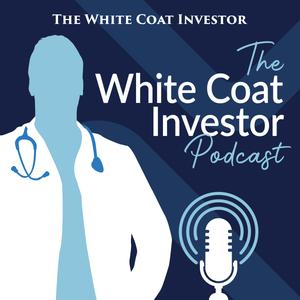 White Coat Investor Podcast
White Coat Investor Podcast
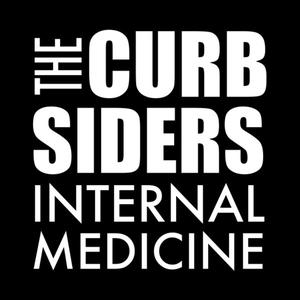 The Curbsiders Internal Medicine Podcast
The Curbsiders Internal Medicine Podcast
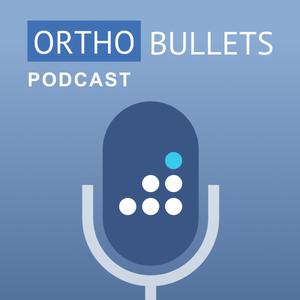 The Orthobullets Podcast
The Orthobullets Podcast
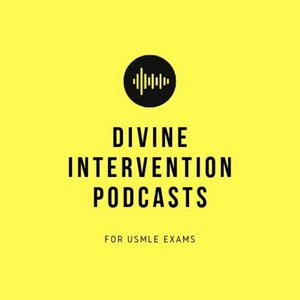 » Divine Intervention Podcasts
» Divine Intervention Podcasts
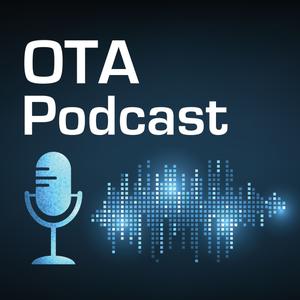 The OTA Podcast
The OTA Podcast
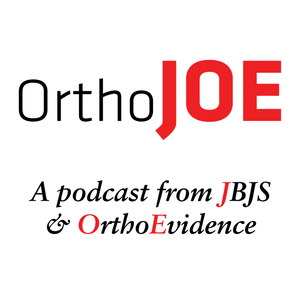 OrthoJOE
OrthoJOE